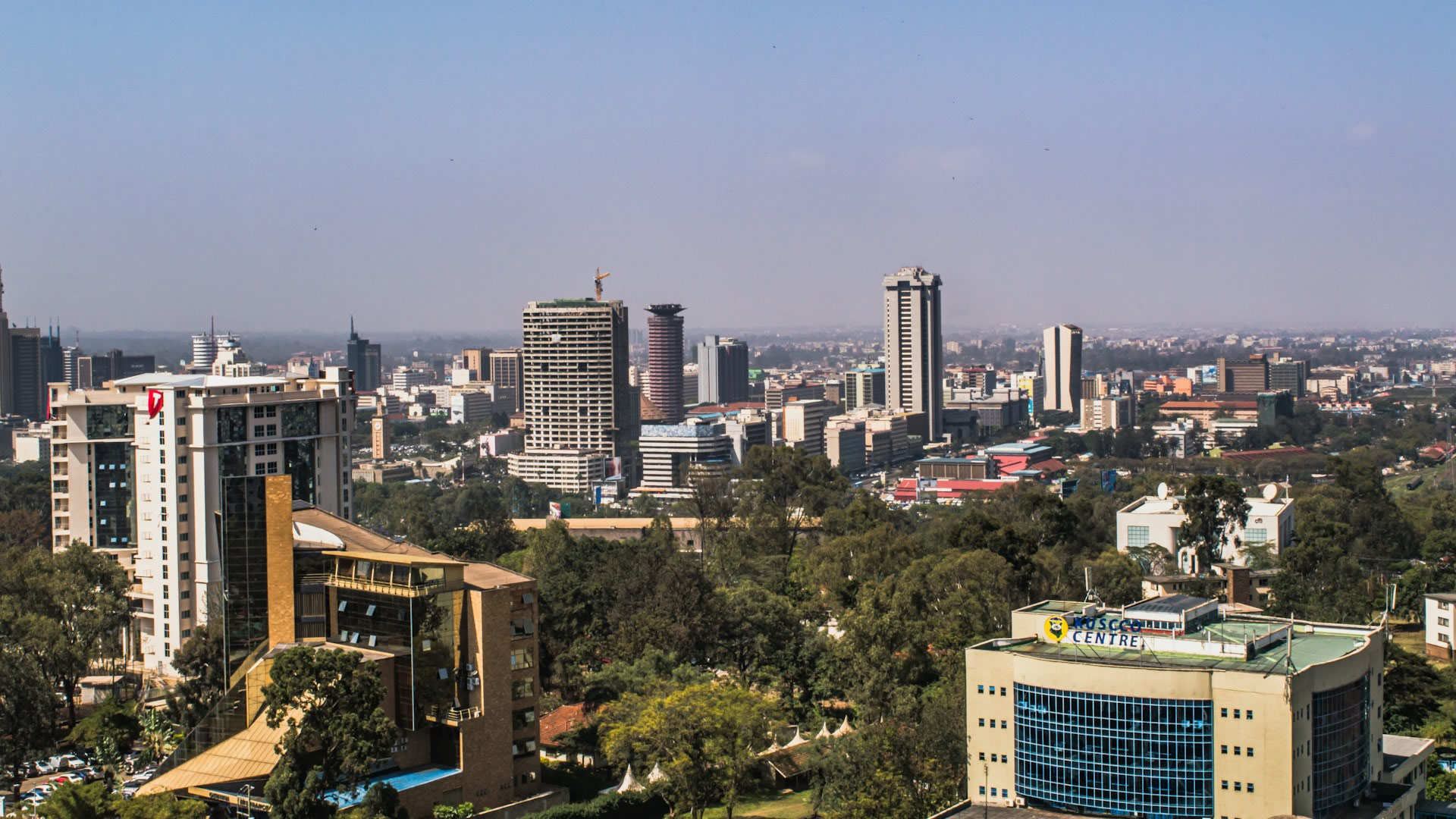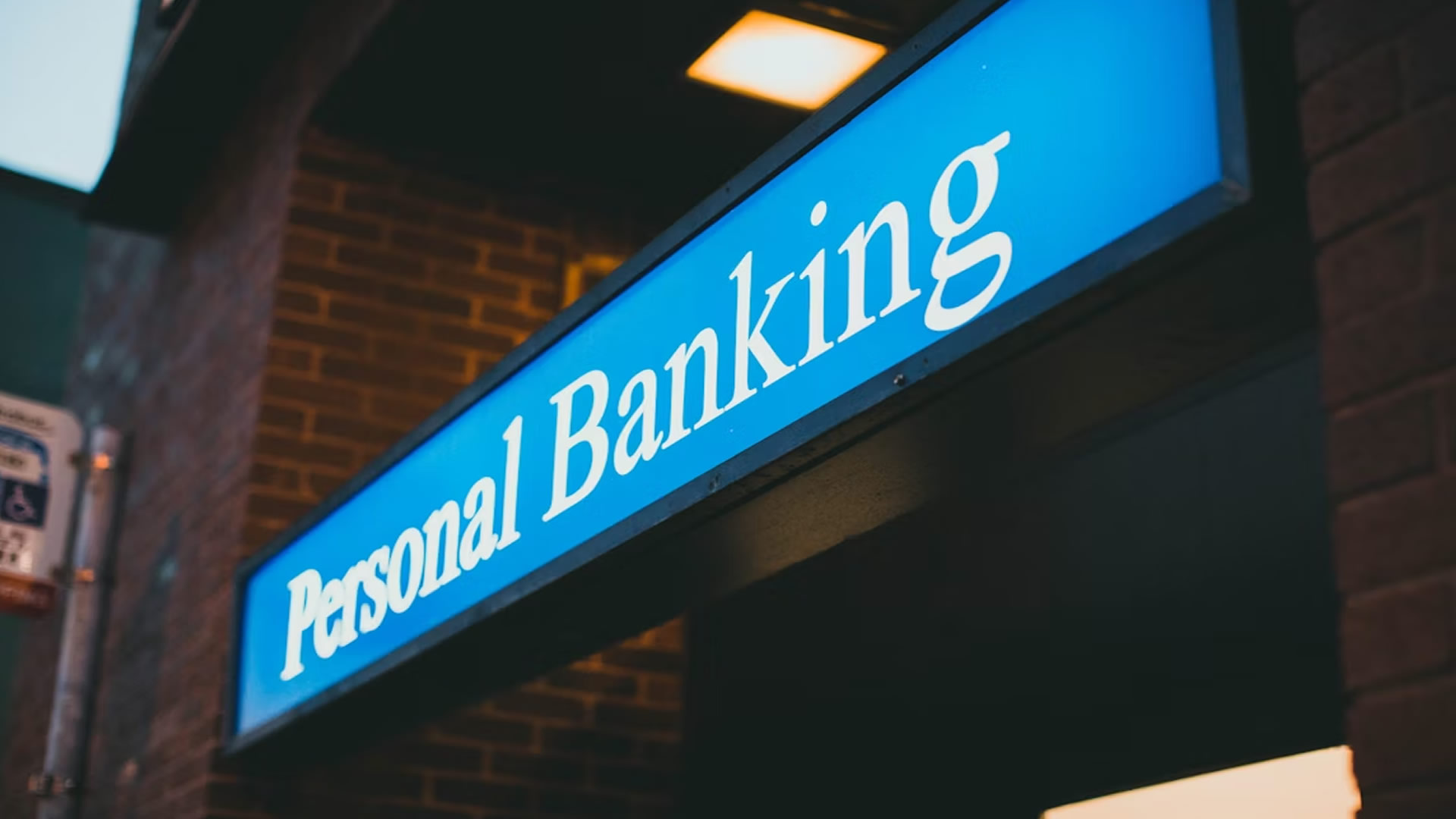The Ultimate Guide to Real Estate in Kenya: Buying, Selling, Renting, and Investing
Real estate in Kenya stands as one of East Africa’s most dynamic and promising investment destinations. With a projected market value of KES US$733.40 billion by 2024 and an anticipated annual growth rate of 5.18%, the Kenyan property sector offers compelling opportunities for buyers, sellers, renters, and investors alike.
Whether you’re a first-time homebuyer navigating Nairobi’s bustling property market, an investor seeking high-yield rental properties, or a homeowner preparing to sell, this comprehensive guide provides everything you need to make informed real estate in Kenya decisions.
Table of Contents
- Kenya Real Estate Market Overview
- Buying Property in Kenya
- Selling Property in Kenya
- Renting in Kenya
- Real Estate Investment Opportunities
- Regional Market Analysis
- Legal Framework and Regulations
- Financing Options
- Market Trends and Future Outlook
- Expert Tips and Best Practices
Kenya Real Estate Market Overview
Current Market Performance
Real estate in Kenya has demonstrated remarkable resilience and growth, with the market experiencing a 33.7% increase in sector output from 2019 to 2023. This impressive growth trajectory positions Kenya as a regional leader in property development and investment opportunities across East Africa.
The residential segment dominates the real estate in Kenya landscape, accounting for a projected KES US$657.60 billion of the total market value in 2024. This dominance reflects the country’s growing urbanization, expanding middle class, and increasing housing demand driven by population growth and economic development.
Key Market Statistics (2024-2025)
Understanding the current statistics is CRITICAL for anyone considering real estate in Kenya:
- Total Market Value: KES US$733.40 billion
- Residential Market Share: KES US$657.60 billion (89.7%)
- Annual Growth Rate: 5.18%
- Nairobi Property Price Growth (2024): 5.2%
- Average Rental Yield (Nairobi): 6.5%
- GDP Growth Impact: 5.2% economic growth fueling real estate in Kenya activity
Economic Drivers
Several macroeconomic factors continue to drive real estate in Kenya growth:
Urbanization: Kenya’s urbanization rate continues to accelerate, with more people migrating to cities for employment opportunities. This demographic shift creates sustained demand for both residential and commercial properties, making real estate in Kenya an increasingly attractive investment.
Infrastructure Development: Government investments in infrastructure projects, including the Standard Gauge Railway (SGR), new highways, and airport expansions, have enhanced property accessibility and value appreciation in previously underserved areas. These developments are ESSENTIAL catalysts for real estate in Kenya growth.
Middle Class Expansion: The growing middle class has increased purchasing power and demand for quality housing, driving development of middle-income housing projects across the country. This demographic shift is FUNDAMENTAL to the real estate in Kenya market expansion.
Foreign Investment: Kenya’s stable political environment and business-friendly policies continue to attract foreign direct investment in real estate in Kenya development and construction projects. International investors recognize Kenya as a strategic entry point into the East African market.
Regional Economic Impact
The real estate in Kenya sector contributes significantly to the national economy through:
- Employment Creation: The construction and property sectors employ over 500,000 people directly
- GDP Contribution: Real estate contributes approximately 8.5% to Kenya’s GDP
- Tax Revenue: Property taxes and stamp duties provide substantial government revenue
- Multiplier Effects: Construction activity stimulates demand in cement, steel, and other industries

Buying Property in Kenya
Understanding the Property Market
Real estate in Kenya offers diverse options ranging from affordable housing units to luxury developments. Understanding market dynamics, location factors, and property types is CRUCIAL for making sound purchasing decisions in today’s competitive environment.
Property Types Available
Residential Properties in Kenya’s Real Estate Market:
- Apartments and condominiums (65% of urban residential stock)
- Standalone houses (bungalows, maisonettes)
- Townhouses and villas
- Affordable housing units (government-backed developments)
- Luxury estates and gated communities
Commercial Real Estate in Kenya:
- Office buildings and spaces (growing 8% annually)
- Retail centers and shopping malls
- Industrial properties and warehouses
- Mixed-use developments
- Hotel and hospitality properties
The Property Buying Process
Understanding the buying process is ABSOLUTELY ESSENTIAL when investing in real estate in Kenya:
Step 1: Property Search and Due Diligence Begin by identifying suitable properties through licensed real estate agents, online platforms like RealEstateKenya.net , or direct developer sales. Conduct thorough due diligence including:
- Title verification at the Ministry of Lands
- Physical inspection of the property
- Verification of planning approvals
- Assessment of infrastructure and utilities
- Market value comparison through professional valuers
Step 2: Financial Preparation Securing adequate financing is CRITICAL for successful real estate in Kenya transactions:
- Mortgage pre-approval from banks or SACCOs
- Personal savings and down payment preparation (typically 10-30%)
- Investment partner arrangements
- Developer financing options
Step 3: Legal Documentation Engage a qualified lawyer to handle legal aspects of real estate in Kenya transactions:
- Sale agreement preparation and review
- Title transfer procedures
- Stamp duty and registration fees
- Legal compliance verification
- Due diligence on property ownership
Step 4: Completion and Handover Finalize the real estate in Kenya transaction through:
- Final property inspection with professional surveyor
- Payment completion through secure banking channels
- Key handover ceremony
- Title deed transfer at the Ministry of Lands
- Property registration and insurance arrangement
Current Property Prices
Property prices in real estate in Kenya vary significantly based on location, property type, and amenities. Recent market data shows:
Nairobi Average Prices (2024):
- City Centre: KSh 140,000-200,000 per square meter
- Suburban Areas: KSh 80,000-150,000 per square meter
- Affordable Housing: $500 per square meter ($45 per square foot)
- Luxury Properties: $2,000 per square meter ($185 per square foot)
Regional Price Variations in Kenya’s Real Estate:
- Mombasa: 20-30% lower than Nairobi prices
- Kisumu: 40-50% lower than Nairobi prices
- Nakuru: 35-45% lower than Nairobi prices
- Eldoret: 45-55% lower than Nairobi prices
Factors Affecting Property Prices
Location and Accessibility: Properties near major transport corridors, business districts, and social amenities command premium prices in real estate in Kenya. Areas like Kilimani, Lavington, and Westlands in Nairobi consistently show strong price appreciation due to their strategic locations.
Infrastructure Development: Government infrastructure projects significantly impact real estate in Kenya values. Areas benefiting from new roads, railway stations, or planned urban developments often experience rapid price appreciation of 15-25% within two years of project completion.
Security and Neighborhood Quality: Secure neighborhoods with good infrastructure, schools, hospitals, and recreational facilities attract higher property values and rental yields. This factor is PARTICULARLY IMPORTANT in real estate in Kenya investment decisions.
Market Supply and Demand: Areas with limited land supply but high demand typically see faster price appreciation in real estate in Kenya. Conversely, oversupplied markets may experience price stagnation or decline.
Tips for First-Time Buyers
Research Thoroughly: Understanding local market conditions, price trends, and future development plans is ESSENTIAL for successful real estate in Kenya investment. Spend at least 3-6 months researching before making purchase decisions.
Budget Realistically: Factor in additional costs including legal fees (1-2%), stamp duty (4% for residents, 6% for non-residents), registration fees, and moving costs. These can add 8-12% to your total real estate in Kenya investment.
Choose Reputable Developers: Working with established developers with proven track records is CRUCIAL to minimize construction and delivery risks in real estate in Kenya. Check their previous projects and completion rates.
Consider Resale Value: Choose properties in areas with strong growth potential and good infrastructure development plans. This strategy is VITAL for long-term real estate in Kenya investment success.
Negotiate Wisely: Don’t be afraid to negotiate on price, payment terms, or included amenities, especially in a buyer’s market. Professional negotiation can save 5-15% on real estate in Kenya purchases.

Selling Property in Kenya
Preparing Your Property for Sale
Successful property sales in real estate in Kenya require strategic preparation, accurate pricing, and effective marketing. Understanding current market conditions and buyer preferences is ESSENTIAL for maximizing sale value and minimizing time on market.
Property Valuation and Pricing Strategy
Professional Valuation: Engaging certified valuers registered with the Institution of Surveyors of Kenya (ISK) is ABSOLUTELY CRITICAL for accurate real estate in Kenya valuations. Professional valuations consider:
- Comparative market analysis of similar properties
- Property condition and recent improvements
- Location and accessibility factors
- Current market trends and demand patterns
- Infrastructure development impact
Pricing Strategies for Real Estate in Kenya:
- Competitive Pricing: Set prices 5-10% below market value to generate quick interest
- Premium Pricing: Price 10-15% above market for unique or exceptional properties
- Market Pricing: Align with current market rates for similar properties in the area
Marketing and Sales Channels
Online Platforms for Real Estate in Kenya:
- <a href=”https://www.kenyapropertycentre.com” rel=”nofollow”>Kenya Property Centre</a>
- <a href=”https://www.property24.co.ke” rel=”nofollow”>Property24 Kenya</a>
- <a href=”https://www.buyrentkenya.com” rel=”nofollow”>BuyRentKenya</a>
- <a href=”https://www.olx.co.ke” rel=”nofollow”>OLX Kenya</a>
- Social media marketing (Facebook, Instagram, LinkedIn)
Traditional Marketing Methods:
- Licensed real estate agents with proven track records
- Newspaper advertisements in major dailies
- Property signage and billboards
- Word-of-mouth referrals through networks
- Property exhibitions and shows
Professional Photography and Staging: High-quality photos and virtual tours significantly impact buyer interest in real estate in Kenya. Professional staging can increase property value by 8-15% and reduce time on market by 30-50%.
Legal Requirements for Sellers
Documentation Requirements for Real Estate in Kenya:
- Original title deed or certificate of title
- Land rent clearance certificate from county government
- Property tax compliance certificate
- Survey plans and building approvals
- Consent to transfer (if applicable for certain property types)
Transfer Process in Kenya’s Real Estate Market:
- Execution of comprehensive sale agreement
- Stamp duty payment and assessment by Kenya Revenue Authority
- Registration of transfer at Ministry of Lands
- Issuance of new title deed to purchaser
Maximizing Sale Value
Property Improvements for Real Estate in Kenya: Strategic renovations can significantly increase property value by 15-25%:
- Kitchen and bathroom upgrades (highest ROI improvements)
- Fresh paint and professional landscaping
- Security system installation and upgrades
- Energy-efficient features (solar panels, LED lighting)
- Modern fixtures and fittings throughout
Timing the Market: Monitoring market cycles and economic conditions is CRUCIAL for optimal real estate in Kenya sales timing. Avoid selling during economic downturns or oversupplied market conditions when possible.
Flexible Payment Terms: Consider offering flexible payment options to attract more buyers in real estate in Kenya:
- Installment payment plans over 6-24 months
- Rent-to-own arrangements for qualified buyers
- Developer financing partnerships
- Trade-in arrangements for existing properties

Renting in Kenya
Rental Market Overview
Kenya’s rental market offers diverse accommodation options catering to various income levels and lifestyle preferences. The rental sector plays a CRUCIAL role in housing Kenya’s urban population, with approximately 60% of urban residents living in rental accommodation, making real estate in Kenya rental investment particularly attractive.
Current Rental Rates
Understanding rental rates is ESSENTIAL for both tenants and real estate in Kenya investors:
Nairobi Rental Prices (2024):
- 1-Bedroom City Centre: $924 per month
- 1-Bedroom Outside Centre: $413 per month
- 3-Bedroom City Centre: $1,200-1,800 per month
- 3-Bedroom Outside Centre: $600-1,200 per month
- Average House Rental: KSh 240,000 per month
Regional Rental Variations in Kenya’s Real Estate Market: Major cities outside Nairobi offer significantly lower rental rates, creating opportunities for real estate in Kenya investment:
- Mombasa: 25-35% lower than Nairobi rental rates
- Kisumu: 40-50% lower than Nairobi rental rates
- Nakuru: 45-55% lower than Nairobi rental rates
Popular Rental Areas
Nairobi High-End Areas for Real Estate in Kenya Investment:
- Kilimani: KSh 25,000-150,000 per month (8-12% rental yield)
- Lavington: KSh 30,000-200,000 per month (6-10% rental yield)
- Westlands: KSh 20,000-170,000 per month (7-11% rental yield)
- Karen: KSh 35,000-250,000 per month (5-8% rental yield)
Mid-Range Areas Offering Strong Real Estate in Kenya Returns:
- Kileleshwa: KSh 20,000-60,000 per month
- Parklands: KSh 15,000-45,000 per month
- South B: KSh 18,000-55,000 per month
- Pangani: KSh 12,000-35,000 per month
Affordable Areas with High Real Estate in Kenya Yields:
- Eastleigh: KSh 8,000-25,000 per month (10-15% yield)
- Pipeline: KSh 10,000-30,000 per month (12-18% yield)
- Kasarani: KSh 12,000-35,000 per month (9-14% yield)
- Githurai: KSh 8,000-20,000 per month (11-16% yield)
Tenant Rights and Responsibilities
Tenant Rights in Kenya’s Real Estate Sector: Understanding tenant rights is FUNDAMENTAL for anyone renting in real estate in Kenya:
- Right to quiet enjoyment of the property without interference
- Protection against unreasonable rent increases (limited to 10% annually)
- Right to basic services and timely maintenance
- Privacy rights and proper notice (24-48 hours) for landlord visits
- Security deposit protection and return guarantee
Tenant Responsibilities:
- Timely rent payment as agreed in lease terms
- Property maintenance and cleanliness standards
- Reporting repairs and maintenance issues promptly
- Respecting property rules and community regulations
- Proper notice (1-3 months) when terminating tenancy
Rental Agreement Essentials
Key Lease Components for Real Estate in Kenya:
- Monthly rent amount and payment schedule (weekly, monthly, quarterly)
- Security deposit requirements (typically 1-3 months’ rent)
- Lease duration and automatic renewal terms
- Maintenance and repair responsibility allocation
- Utility arrangements and cost-sharing agreements
- Termination clauses and required notice periods
Legal Protections: The Rent Restriction Act and various housing policies protect both landlords and tenants in real estate in Kenya, establishing frameworks for fair rental practices and dispute resolution mechanisms.
Finding Rental Properties
Online Platforms for Real Estate in Kenya Rentals:
- <a href=”https://www.buyrentkenya.com” rel=”nofollow”>BuyRentKenya</a>
- <a href=”https://www.pigiame.co.ke” rel=”nofollow”>PigiaMe</a>
- <a href=”https://www.kenyapropertycentre.com” rel=”nofollow”>Kenya Property Centre</a>
- <a href=”https://www.lamudi.co.ke” rel=”nofollow”>Lamudi Kenya</a>
- Facebook housing groups and communities
Traditional Methods:
- Licensed real estate agents with rental specialization
- Newspaper classified advertisements
- Property management companies with extensive portfolios
- Word-of-mouth referrals from networks
- Direct property visits and inquiries
Rental Investment Considerations
For property investors, real estate in Kenya rental market offers attractive opportunities with gross rental yields ranging from 4.04% to 6.5% depending on location and property type.
High-Yield Areas in Kenya’s Real Estate Market:
- Eastlands suburbs: 8-12% gross rental yield
- Satellite towns: 7-10% gross rental yield
- Student accommodation: 10-15% gross rental yield
Stable Yield Areas for Real Estate in Kenya Investment:
- Established middle-class suburbs: 5-8% gross rental yield
- Commercial properties: 6-10% gross rental yield
- High-end residential: 4-7% gross rental yield
Real Estate Investment Opportunities
Investment Types and Strategies
Real estate in Kenya offers diverse investment opportunities suitable for various risk profiles and investment horizons. Understanding different investment types and their potential returns is CRUCIAL for building a successful property portfolio in Kenya’s dynamic market.
Residential Investment Properties
Buy-to-Let Properties in Kenya’s Real Estate Market: Purchasing properties specifically for rental income provides steady cash flow and long-term capital appreciation. This strategy is PARTICULARLY EFFECTIVE in real estate in Kenya due to strong rental demand:
- Location Selection: Focus on areas with high rental demand, good infrastructure, and growth potential
- Property Type: Apartments in middle-income areas often provide better yields than luxury properties
- Tenant Management: Consider hiring property management companies for efficient operations
Property Development in Kenya’s Real Estate Sector: Developing residential properties from scratch can offer substantial returns but requires significant capital and expertise. This approach is HIGHLY PROFITABLE in real estate in Kenya when executed correctly:
- Land Acquisition: Secure well-located land with proper title and development approvals
- Construction Management: Work with experienced contractors and certified architects
- Market Timing: Align project completion with demand cycles for optimal returns
Affordable Housing Initiatives: Government affordable housing programs offer attractive investment opportunities in real estate in Kenya:
- Partnership Opportunities: Collaborate with government agencies on large-scale projects
- Tax Incentives: Benefit from various tax advantages for affordable housing developers
- Social Impact: Contribute to solving Kenya’s housing deficit while generating attractive returns
Commercial Real Estate Investment
Office Buildings in Kenya’s Real Estate Market: Commercial office spaces in major business districts provide stable rental income and appreciation:
- Nairobi CBD: Prime office space rents at KSh 80-120 per square foot monthly
- Westlands: Modern office complexes command KSh 60-100 per square foot
- Upper Hill: Emerging business district with competitive rental rates
Retail Properties: Shopping centers and retail spaces benefit from Kenya’s growing consumer market and expanding real estate in Kenya sector:
- Neighborhood Shopping Centers: Serve local communities with steady foot traffic
- Strip Malls: Lower investment entry points with good returns (8-12% yields)
- Anchor Tenant Strategy: Secure established retail chains as primary tenants
Industrial Properties: Manufacturing and logistics facilities capitalize on Kenya’s industrial growth within the broader real estate in Kenya landscape:
- Warehouse Facilities: E-commerce growth drives demand for storage centers
- Manufacturing Spaces: Industrial parks near Nairobi and Mombasa offer excellent opportunities
- Special Economic Zones: Government-designated areas with investment incentives
Real Estate Investment Trusts (REITs)
Kenya’s REIT market is developing rapidly, offering portfolio diversification opportunities for real estate in Kenya investors:
Current REIT Options:
- Fahari I-REIT: Focused on income-generating commercial properties
- ILAM Fahari I-REIT: Listed on Nairobi Securities Exchange
REIT Benefits for Real Estate in Kenya Investment:
- Lower entry capital requirements (minimum KSh 5,000)
- Professional property management and oversight
- Liquidity through stock exchange trading
- Diversified property exposure across sectors
Investment Performance Metrics
Average Returns by Property Type in Kenya’s Real Estate:
- Residential Rental: 5-12% gross yield annually
- Commercial Office: 6-10% gross yield annually
- Retail Properties: 8-14% gross yield annually
- Industrial: 7-11% gross yield annually
- Mixed-Use Developments: 6-9% gross yield annually
Capital Appreciation Rates:
- Nairobi: 5.2% annual appreciation (2024)
- Mombasa: 3-4% annual appreciation
- Secondary Cities: 4-6% annual appreciation
Foreign Investment Opportunities
Kenya welcomes foreign real estate in Kenya investment with specific regulations and attractive incentives:
Foreign Ownership Rules:
- Freehold ownership allowed in designated urban areas
- Leasehold options available nationwide for 99-year terms
- Joint ventures with local partners strongly encouraged
Investment Incentives for Real Estate in Kenya:
- Export Processing Zones (EPZ) benefits and tax holidays
- Special Economic Zones advantages and streamlined approvals
- Infrastructure bond investments with government guarantees
- Development finance institution partnerships

Regional Market Analysis
Nairobi Metropolitan Area
Nairobi remains the epicenter of real estate in Kenya, accounting for approximately 40% of the country’s total property transactions. The city’s status as East Africa’s commercial and financial hub continues to drive unprecedented property demand and price appreciation.
Market Characteristics:
- Population: Over 4.5 million residents and growing
- Average Property Appreciation: 5.2% annually (2024)
- Rental Yield Range: 4-8% depending on specific location
- Major Growth Areas: Kilimani, Kileleshwa, Parklands, Kasarani
Prime Residential Areas for Real Estate in Kenya Investment:
Karen and Langata Districts: These areas represent the premium segment of real estate in Kenya:
- Average house prices: KSh 25-80 million
- Rental yields: 4-6% annually
- Characteristics: Large plots, embassy residences, expatriate community
- Growth potential: 8-12% annual appreciation
Kilimani and Kileleshwa: These neighborhoods showcase the modern face of real estate in Kenya:
- Apartment prices: KSh 8-25 million
- Rental yields: 6-8% annually
- Characteristics: High-rise developments, young professionals, excellent amenities
- Investment appeal: Strong rental demand and capital growth

Mombasa and Coastal Region
Mombasa serves as Kenya’s gateway to the Indian Ocean and East Africa’s largest port, creating unique real estate in Kenya opportunities driven by tourism, international trade, and coastal lifestyle appeal.
Market Overview:
- Property Prices: 20-30% below Nairobi levels, offering attractive entry points
- Rental Yields: 6-10% for well-located properties
- Key Drivers: Tourism recovery, port expansion, retirement living trends
Investment Opportunities in Coastal Real Estate in Kenya:
Tourism and Hospitality Sector:
- Beach resorts and vacation homes with 12-18% yields
- Short-term rental properties (Airbnb) generating premium returns
- Conference and event facilities serving business tourism
Residential Development:
- Retirement communities for domestic and international retirees
- Affordable housing for port workers and service industry employees
- Luxury beachfront developments targeting high-net-worth individuals

Secondary Cities Growth
Kisumu and Western Kenya: Kisumu represents an emerging opportunity in real estate in Kenya, driven by regional trade and Lake Victoria economic activities:
- Property Prices: 40-50% below Nairobi levels
- Growth Drivers: Regional trade hub, agricultural processing, fishing industry
- Investment Focus: Affordable housing and commercial development
Nakuru – The Agricultural Hub: Nakuru’s strategic position makes it increasingly attractive for real estate in Kenya investment:
- Strategic location on major transport corridors
- Agricultural hub driving commercial property demand
- Government administrative center providing employment stability
Legal Framework and Regulations
Property Ownership Laws
Real estate in Kenya operates under a comprehensive legal framework primarily governed by the Land Act 2012, Land Registration Act 2012, and National Land Commission Act 2012. These laws collectively reformed the country’s land tenure system and created a more transparent, efficient property ownership structure.
Types of Land Ownership in Kenya’s Real Estate Market:
Freehold Title: This represents the most secure form of ownership in real estate in Kenya:
- Absolute ownership with no time restrictions
- Complete rights to use, lease, sell, or develop
- Most secure form of land tenure available
- Available to Kenyan citizens and designated areas for foreigners
Leasehold Title: The most common form of urban real estate in Kenya ownership:
- Ownership for specified periods (typically 99 years)
- Renewable subject to conditions and government fees
- Government retains ultimate ownership
- Dominant form of commercial and residential tenure
Foreign Ownership Regulations
Permitted Foreign Investment in Real Estate in Kenya:
- Freehold Rights: Available in designated urban centers and development areas
- Leasehold Options: Available nationwide for terms up to 99 years
- Corporate Ownership: Foreign companies can own property through Kenyan entities
Compliance Requirements for Foreign Real Estate in Kenya Investment:
- Investment authorization through Kenya Association of Manufacturers
- Foreign exchange compliance with Central Bank of Kenya
- Tax registration and compliance with Kenya Revenue Authority
Property Transfer Process
Legal Documentation for Real Estate in Kenya Transactions:
The transfer process is ABSOLUTELY CRITICAL and requires meticulous attention to detail:
Title Verification Steps:
- Original title deed verification and authentication
- Comprehensive search at Ministry of Lands database
- Confirmation of no encumbrances, caveats, or legal disputes
- Survey plans validation and boundary confirmation
Transfer Documentation Requirements:
- Comprehensive sale agreement signed by all parties
- Transfer instrument completion (Form RLA 2A)
- Stamp duty assessment and payment through KRA
- Land rent clearance from relevant county government
Building Regulations and Approvals
Planning Permission for Real Estate in Kenya Development: All construction projects require proper approvals:
- Building Permits: Mandatory for all construction activities
- Environmental Impact Assessment: Required for developments over certain thresholds
- Fire Safety Compliance: Essential for occupancy certificates
- Utility Connections: Water, sewer, electrical, and telecommunications approvals
Professional Standards in Kenya’s Real Estate Construction:
- Building Code Compliance: National Construction Authority standards
- Professional Supervision: Licensed architects and engineers mandatory
- Quality Assurance: Regular inspections throughout construction phases
- Completion Certificates: Final approvals before property occupancy
Financing Options
Mortgage Financing
Real estate in Kenya financing has evolved significantly, offering various options for property buyers. The mortgage market, while growing, represents tremendous potential with a mortgage-to-GDP ratio of approximately 3%, indicating substantial room for expansion.
Commercial Bank Mortgages for Real Estate in Kenya:
Major Mortgage Lenders:
- Kenya Commercial Bank (KCB): Market leader offering competitive rates and flexible terms
- Equity Bank: Specializes in affordable housing and first-time buyer programs
- Cooperative Bank: Strong SACCO partnerships providing member benefits
- Standard Chartered: Premium banking services with expatriate-friendly products
Comprehensive Mortgage Terms:
- Interest Rates: 12-16% annual percentage rate (2024 market rates)
- Loan-to-Value Ratio: Up to 90% for Kenyan residents, 70% for non-residents
- Repayment Period: 5-25 years depending on borrower age and income capacity
- Down Payment Requirements: 10-30% of total property value
SACCO Financing
Savings and Credit Cooperative Organizations play a VITAL role in real estate in Kenya financing, often providing more accessible and affordable financing options for their members.
SACCO Advantages for Real Estate in Kenya Investment:
- Lower Interest Rates: Typically 1-3 percentage points below commercial banks
- Flexible Qualification Requirements: Less stringent income and credit criteria
- Member Dividend Benefits: Annual dividend payments and social programs
- Local Market Knowledge: Deep understanding of regional markets
Major Housing SACCOs:
- Kenya Police SACCO: Serving security sector professionals
- Stima SACCO: Electricity sector employees and affiliates
- Hazina SACCO: Government employees across all ministries
- Mwalimu National SACCO: Teachers and education sector workers
Government Housing Programs
Affordable Housing Initiative Impact on Real Estate in Kenya: The government’s Big Four Agenda positions affordable housing as a cornerstone priority, creating significant opportunities within real estate in Kenya:
Program Features:
- Annual Target: Deliver 250,000 affordable housing units yearly
- Financing Mechanism: Subsidized mortgages through Kenya Mortgage Refinance Company
- Qualification Criteria: Income limits and first-time buyer preferences
- Geographic Focus: Major urban centers and planned satellite towns
Housing Fund Contribution System:
- Employee Contribution: Mandatory 1.5% of gross salary contribution
- Employer Matching: Equal contribution required from all employers
- Fund Benefits: Access to subsidized housing financing and development grants
- Investment Returns: Fund investments in diverse real estate in Kenya projects
Market Trends and Future Outlook
Current Market Dynamics
Real estate in Kenya is experiencing unprecedented transformation characterized by technological innovation, evolving consumer preferences, and progressive regulatory frameworks. Understanding these trends is ABSOLUTELY ESSENTIAL for successful property investment and development decisions.
Technology Integration and PropTech
Digital Transformation in Real Estate in Kenya: The property sector is embracing cutting-edge technology to enhance efficiency, transparency, and customer experience:
Advanced Online Platforms:
- Virtual Reality Tours: 360-degree property viewing capabilities eliminating physical visits
- AI-Powered Matching: Sophisticated algorithms matching buyers with suitable properties
- Digital Documentation: Electronic contracts and completely paperless transactions
- Mobile Applications: Comprehensive smartphone apps for property search, financing, and management
Blockchain and Smart Contracts for Real Estate in Kenya:
- Digital Title Registration: Blockchain-based land registry systems ensuring secure ownership records
- Automated Transactions: Smart contracts reducing fraud, delays, and transaction costs
- Cryptocurrency Integration: Digital payments and mobile money seamless integration
- Transparent Record-Keeping: Immutable transaction histories and ownership verification
Sustainable Development Trends
Green Building Movement in Real Estate in Kenya: Environmental consciousness is dramatically reshaping property demand and development practices:
Energy Efficiency Standards:
- LEED Certification: Rapidly increasing number of certified sustainable buildings
- Solar Power Integration: Residential and commercial solar installations becoming standard
- Smart Home Technology: Energy-efficient appliances and automated systems reducing utility costs
- Green Mortgage Incentives: Favorable financing terms for energy-efficient properties
Water Conservation and Management:
- Rainwater Harvesting Systems: Mandatory requirements in most new developments
- Greywater Recycling: Advanced water treatment and reuse systems
- Efficient Plumbing Infrastructure: Low-flow fixtures and smart irrigation systems
- Drought-Resistant Landscaping: Native plants and water-wise gardening approaches
Demographic Shifts and Housing Demand
Urbanization Acceleration: Kenya’s urban population is projected to reach 35 million by 2050, creating massive demand for real estate in Kenya development:
Urban Growth Patterns:
- Satellite Cities: Strategic development of secondary urban centers around major cities
- Vertical Development: High-rise construction maximizing limited urban land use efficiency
- Mixed-Use Projects: Integrated living, working, and recreational spaces
- Transit-Oriented Development: Properties strategically clustered around transportation hubs
Generational Preferences Reshaping Real Estate in Kenya: Millennial and Gen Z buyers are fundamentally transforming market demands:
Modern Lifestyle Preferences:
- Flexible Spaces: Home offices and multi-purpose rooms for remote work
- Community Amenities: Gyms, co-working spaces, and social interaction areas
- Technology Integration: Smart homes and high-speed internet connectivity as standard
- Sustainable Living: Environmental consciousness driving purchase and rental decisions
Innovative Financial Approaches:
- Shared Ownership: Cooperative buying groups and investment partnerships
- Rent-to-Own Programs: Gradual ownership transition arrangements
- Subscription Living: Flexible rental agreements and fully furnished spaces
- Digital-First Transactions: Complete online property search and purchase processes
Infrastructure Development Impact
Major Infrastructure Projects Transforming Real Estate in Kenya: Government and private sector infrastructure investments continue to dramatically reshape the property landscape:
Transportation Network Expansion:
- Standard Gauge Railway (SGR): Enhanced high-speed connectivity between major cities
- Expressway Networks: Improved urban mobility and property accessibility
- Bus Rapid Transit Systems: Planned BRT implementation in major urban centers
- Airport Expansion Projects: Increased international connectivity boosting property values
Utility Infrastructure Development:
- Fiber Optic Networks: Comprehensive high-speed internet infrastructure development
- Power Grid Modernization: Reliable electricity supply to previously underserved areas
- Water Infrastructure Projects: Major dams and distribution systems improving supply
- Waste Management Systems: Modern sewerage and waste treatment facilities
Market Supply and Demand Dynamics
Housing Supply Challenges in Real Estate in Kenya: Despite unprecedented demand, Kenya faces significant housing supply constraints:
Critical Supply Deficit Statistics:
- Current Housing Shortage: Estimated 2 million housing units deficit nationwide
- Annual Housing Demand: 250,000 new units required annually
- Current Supply Delivery: Approximately 50,000 units completed annually
- Affordability Gap: Severe shortage in affordable housing segments
Development Constraint Factors:
- Land Availability: Suitable development land scarcity in prime urban areas
- Infrastructure Development Costs: High expenses for utilities and access roads
- Regulatory Processing Delays: Planning approval and permit processing bottlenecks
- Construction Cost Inflation: Rising material and skilled labor costs impacting affordability
Investment Opportunities and Emerging Markets
Emerging Investment Themes in Real Estate in Kenya:
Affordable Housing Development Sector:
- Government Partnership Programs: Large-scale public-private partnerships
- Corporate Employee Housing: Companies developing staff accommodation as benefits
- Community Development Initiatives: Cooperative housing projects and community land schemes
- Rural Housing Markets: Emerging rural property markets driven by agricultural modernization
Commercial Real Estate Evolution:
- Co-Working Space Development: Flexible office solutions for startups and remote workers
- E-Commerce Warehousing: Distribution centers supporting rapidly growing online retail
- Healthcare Facility Development: Private healthcare infrastructure meeting expanding demand
- Educational Infrastructure: Private schools and universities expansion across regions
Economic Factors and Market Outlook
Macroeconomic Influences on Real Estate in Kenya:
Economic Growth Projections:
- GDP Growth Rate: Projected 5.2% economic expansion supporting property demand
- Inflation Management: Central Bank monetary policies balancing growth and price stability
- Currency Stability: Kenyan Shilling performance directly affecting foreign investment flows
- Interest Rate Environment: Monetary policy decisions significantly impacting financing costs
Government Policy Impact on Real Estate in Kenya:
- Affordable Housing Initiative: Big Four Agenda housing delivery targets and programs
- Tax Incentive Structures: Development incentives and first-time buyer benefit programs
- Infrastructure Investment: Sustained government infrastructure spending commitments
- Regulatory Reform Process: Ongoing land law reforms and administrative improvements
Future Market Predictions
Five-Year Outlook for Real Estate in Kenya (2025-2030):
Property Value Appreciation Trends:
- Nairobi Metropolitan: Projected 4-6% annual appreciation rates
- Secondary Cities: Expected 5-8% annual growth potential
- Coastal Regions: Tourism recovery driving 3-5% appreciation annually
- Satellite Towns: Infrastructure-driven growth of 6-9% annually
Rental Market Evolution:
- Yield Compression: Premium areas experiencing rental yield reduction
- Emerging Area Opportunities: Significantly higher yields in developing suburban areas
- Commercial Rental Growth: Office and retail space demand expansion
- Short-Term Rental Growth: Tourism and business travel recovery acceleration
Risk Factors and Mitigation Strategies
Market Risk Assessment for Real Estate in Kenya:
- Economic Volatility: Global economic uncertainty potentially affecting local markets
- Political Stability: Electoral cycles and policy changes impacting investor confidence
- Climate Change Impact: Weather pattern changes affecting agriculture and urban development
- Infrastructure Delivery Delays: Project delays potentially affecting property value appreciation
Comprehensive Risk Mitigation Approaches:
- Geographic Diversification: Spreading investments across multiple regions and property types
- Professional Advisory Services: Engaging qualified real estate professionals and consultants
- Comprehensive Insurance Coverage: Property, liability, and rental income protection policies
- Continuous Market Research: Ongoing monitoring of market conditions and trend analysis
Expert Tips and Best Practices
For Property Buyers in Real Estate in Kenya
Research and Due Diligence Strategies:
Comprehensive Market Analysis: Understanding market dynamics is ABSOLUTELY CRITICAL for successful real estate in Kenya investment:
- Comparative Market Analysis: Research similar properties in target areas over 6-12 months
- Historical Price Trend Analysis: Study 5-10 year price movements and appreciation patterns
- Infrastructure Development Assessment: Investigate planned government and private projects
- Neighborhood Evaluation: Assess schools, healthcare facilities, shopping centers, and transportation
Professional Property Inspection:
- Qualified Surveyor Engagement: Professional structural and systems assessments
- Utility Systems Verification: Confirm reliable water, electricity, and sewerage connections
- Legal Compliance Confirmation: Building approvals and planning permission verification
- Environmental Risk Assessment: Flooding, soil stability, and environmental hazard evaluation
Financial Planning for Real Estate in Kenya Investment:
- Comprehensive Budget Planning: Include purchase price, legal fees, stamp duty, insurance, and moving costs
- Mortgage Pre-Approval: Secure financing approval before beginning serious property search
- Emergency Fund Maintenance: Maintain 6-12 months of reserves for unexpected costs and maintenance
- Long-Term Investment Planning: Consider resale potential, market trends, and future financial needs
For Property Sellers in Real Estate in Kenya
Property Preparation and Presentation:
Strategic Property Enhancement: Maximizing property value is ESSENTIAL for successful real estate in Kenya sales:
- High-Impact Renovations: Focus investments on kitchens, bathrooms, and exterior curb appeal
- Professional Photography: Invest in high-quality property photography and virtual tours
- Property Staging: Present properties in optimal condition for buyer viewing
- Complete Documentation: Prepare all required legal and technical documents in advance
Effective Pricing Strategy:
- Market-Based Pricing: Set competitive prices based on recent comparable sales data
- Timing Considerations: Consider seasonal market cycles and economic conditions
- Negotiation Flexibility: Prepare for buyer negotiations and competitive counteroffers
- Multiple Offer Strategies: Create market urgency through comprehensive marketing campaigns
For Rental Property Investors
Property Selection Criteria for Real Estate in Kenya Investment:
Location Factor Analysis:
- Transportation Links: Proximity to public transportation and major road networks
- Employment Centers: Access to business districts and major job opportunity areas
- Educational Institutions: Schools and universities driving consistent rental demand
- Future Development Plans: Areas with planned infrastructure and commercial development
Professional Property Management:
- Thorough Tenant Screening: Comprehensive background checks and income verification processes
- Proactive Maintenance Programs: Preventive maintenance schedules reducing long-term costs
- Efficient Rent Collection Systems: Automated and reliable rent collection processes
- Legal Compliance: Complete understanding of landlord-tenant laws and regulations
For Real Estate Professionals
Professional Development in Real Estate in Kenya:
- Continuous Education: Stay current on market trends, legal changes, and industry best practices
- Technology Adoption: Embrace PropTech tools for enhanced service delivery and efficiency
- Professional Networking: Build relationships with developers, financial institutions, and industry professionals
- Market Specialization: Develop expertise in specific market segments or geographic areas
Client Service Excellence Standards:
- Clear Communication: Maintain transparent, timely communication with all clients
- Market Knowledge: Provide accurate, current market information and professional analysis
- Professional Ethics: Adhere to strict professional standards and ethical practices
- After-Sale Service: Provide ongoing support and assistance beyond transaction completion
Common Mistakes to Avoid in Real Estate in Kenya
Critical Buyer Mistakes:
- Insufficient Research: Failing to thoroughly investigate properties, markets, and legal requirements
- Emotional Decision Making: Making purchase decisions based on emotions rather than objective analysis
- Inadequate Financial Planning: Overextending financially or insufficient mortgage preparation
- Skipping Professional Inspections: Avoiding essential structural and systems inspections
Seller Mistakes in Real Estate in Kenya:
- Unrealistic Overpricing: Setting asking prices significantly above current market values
- Poor Property Presentation: Inadequate preparation and unprofessional property presentation
- Limited Marketing Exposure: Insufficient marketing reach and channel utilization
- Inflexible Terms: Unwillingness to negotiate reasonably on price, terms, or conditions
Investor Mistakes:
- Inadequate Due Diligence: Insufficient market research and property analysis before investment
- Poor Location Selection: Investing in areas with limited growth potential or declining markets
- Excessive Leverage: Taking on too much debt relative to income and asset capacity
- Neglecting Property Management: Inadequate property maintenance and tenant relationship management
Building a Professional Real Estate Network
Key Professional Relationships for Real Estate in Kenya Success:
- Licensed Real Estate Agents: Experienced professionals with extensive market knowledge
- Property Lawyers: Specialists in real estate law for legal compliance and transaction support
- Financial Advisors: Mortgage brokers, financial planners, and investment consultants
- Construction Contractors: Reliable construction and maintenance service professionals
- Property Management Companies: Experienced rental property management and tenant relations
Industry Resources and Organizations:
- Professional Associations: <a href=”https://www.karea.co.ke” rel=”nofollow”>Kenya Association of Real Estate Agents (KAREA)</a>
- Government Agencies: Ministry of Lands, National Land Commission, county governments
- Financial Institution Networks: Banks, SACCOs, and specialized mortgage companies
- Market Research Organizations: Property consultancies and market analysis firms
Real estate in Kenya presents exceptional opportunities across all market sectors, from large-scale affordable housing development to premium luxury commercial properties. With a projected market value reaching KES US$733.40 billion and sustained 5.18% annual growth, the sector offers compelling prospects for buyers, sellers, renters, and serious investors.
The foundation of success in real estate in Kenya lies in thorough understanding of local market dynamics, conducting comprehensive due diligence, and working exclusively with qualified professionals. Whether you’re purchasing your first family home, building a diversified investment portfolio, or developing large-scale properties, the fundamental principles remain constant: strategic location selection, optimal market timing, comprehensive financial planning, and proactive risk management.
As Kenya continues its ambitious economic development journey, driven by massive infrastructure investment, accelerating urbanization, and rapid technological advancement, real estate in Kenya will undoubtedly play an increasingly crucial role in the country’s growth success story. By diligently following the detailed guidance and proven best practices outlined throughout this comprehensive guide, you’ll be optimally positioned to navigate Kenya’s dynamic property market and achieve your specific real estate objectives.
The future prospects for real estate in Kenya are exceptionally bright, with diverse opportunities spanning from Nairobi’s bustling commercial districts to emerging satellite cities, from coastal tourism developments to rapidly growing industrial zones. Success requires thorough preparation, professional guidance, and unwavering commitment to understanding the unique characteristics that make real estate in Kenya one of Africa’s most promising and profitable investment destinations.
Whether you’re taking your initial steps into property ownership or significantly expanding an existing real estate in Kenya portfolio, the market offers the diversity, growth potential, and regulatory framework necessary for successful long-term ventures. The optimal time to engage with real estate in Kenya is now – armed with comprehensive knowledge, supported by qualified professionals, and guided by the detailed insights provided in this ultimate guide to real estate in Kenya success.
Kenya National Bureau of Statistics Real Estate Survey 2023-24
About RealEstateKenya.net: We are Kenya’s leading property information resource, providing comprehensive market analysis, investment guidance, and professional services to help you succeed in real estate in Kenya. For more detailed market reports, property listings, and expert consultation, visit our website or contact our professional team today.
Disclaimer: This article is provided for educational and informational purposes only. The content contained herein does not constitute professional financial, legal, or real estate advice. While we strive to provide accurate and up-to-date information, real estate markets are dynamic and constantly changing. We strongly recommend conducting your own due diligence and consulting with qualified professionals including licensed real estate agents, lawyers, financial advisors, and property valuers before making any real estate decisions. RealEstateKenya.net and its authors are not liable for any financial losses or damages that may arise from the use of this information.





